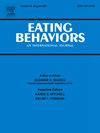Emergency medical reviews and medical admission transfers during psychiatric inpatient eating disorders unit treatment
IF 2.4
3区 医学
Q2 PSYCHIATRY
引用次数: 0
Abstract
Objective
There is limited information regarding emergency medical reviews (EMRs) and medical admission transfers for psychiatric eating disorders inpatients. We aimed to describe (i) EMRs during psychiatric inpatient eating disorders treatment at the Eating Disorders Unit (EDU), Austin Hospital in Melbourne, Victoria, and (ii) medical admission transfers during EDU admissions.
Methods
Retrospective review of patient files was undertaken for inpatients aged 18–65 years with an eating disorder who resided within the Body Image & Eating Disorders Treatment & Recovery Service (BETRS) catchment area and were admitted to EDU between 01/01/21 to 30/10/23.
Results
Among 177 EDU admissions there were 33 EMRs and 17 medical transfers. On average, inpatients with EMRs or medical transfers were older with greater medical multimorbidity or polypharmacy, and a higher proportion of atypical anorexia nervosa and anorexia nervosa – binge/purge subtype. EMR indications included postural tachycardia, hypotension, sinus tachycardia, hypokalaemia, hypoglycaemia, altered conscious state, and chest pain. Medical admission indications included refeeding in the setting of vital sign derangement, intravenous potassium, vital sign derangement or falls attributed to antipsychotic use, infection, abdominal pain, and self-harm.
Conclusion
Early medical assessment and intensive monitoring are recommended for older patients with greater medical multimorbidity/polypharmacy, orthostasis, or higher risk of electrolyte instability. Caution should be undertaken regarding antipsychotic use in this vulnerable population.
精神科住院病人进食障碍治疗期间的紧急医疗检查和住院转院
目的关于精神性进食障碍住院患者的急诊医学回顾(emr)和住院转院的信息有限。我们的目的是描述(i)在维多利亚州墨尔本奥斯汀医院饮食失调科(EDU)的精神科住院患者饮食失调治疗期间的电子病历记录,以及(ii)在EDU入院期间的医疗转移。方法回顾性分析18-65岁的饮食失调住院患者的病历资料,这些患者居住在Body Image &;饮食失调治疗&;于21年1月1日至23年10月30日期间入院。结果177例急诊入院患者中有33例emr, 17例转院。平均而言,emr或转院的住院患者年龄较大,医疗多重疾病或多种药物较多,非典型神经性厌食症和神经性厌食症-暴食/清除亚型的比例较高。EMR适应症包括体位性心动过速、低血压、窦性心动过速、低钾血症、低血糖、意识状态改变和胸痛。入院指征包括生命体征紊乱、静脉输钾、生命体征紊乱或因使用抗精神病药物而跌倒、感染、腹痛和自残。结论对于医学多病/多药、直立性或电解质不稳定风险较高的老年患者,建议进行早期医学评估和强化监测。在这一脆弱人群中使用抗精神病药物应谨慎。
本文章由计算机程序翻译,如有差异,请以英文原文为准。
求助全文
约1分钟内获得全文
求助全文
来源期刊

Eating behaviors
Multiple-
CiteScore
4.20
自引率
3.60%
发文量
65
审稿时长
60 days
期刊介绍:
Eating Behaviors is an international peer-reviewed scientific journal publishing human research on the etiology, prevention, and treatment of obesity, binge eating, and eating disorders in adults and children. Studies related to the promotion of healthy eating patterns to treat or prevent medical conditions (e.g., hypertension, diabetes mellitus, cancer) are also acceptable. Two types of manuscripts are encouraged: (1) Descriptive studies establishing functional relationships between eating behaviors and social, cognitive, environmental, attitudinal, emotional or biochemical factors; (2) Clinical outcome research evaluating the efficacy of prevention or treatment protocols.
 求助内容:
求助内容: 应助结果提醒方式:
应助结果提醒方式:


